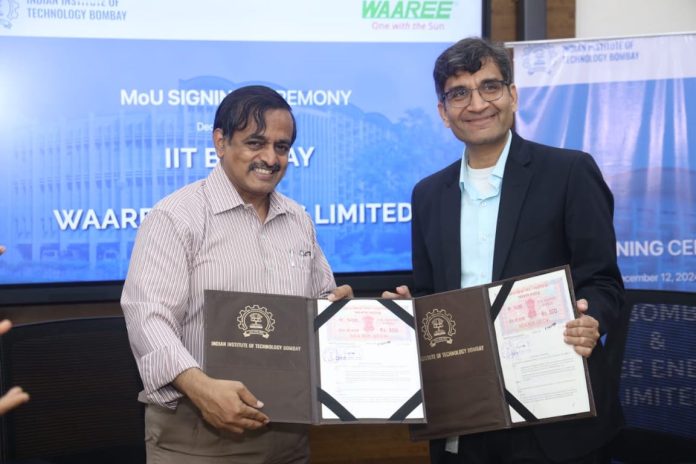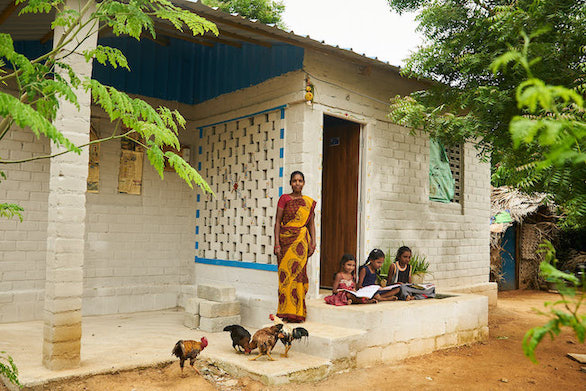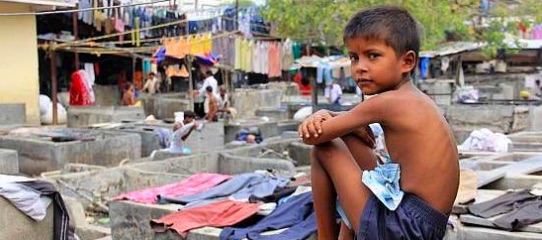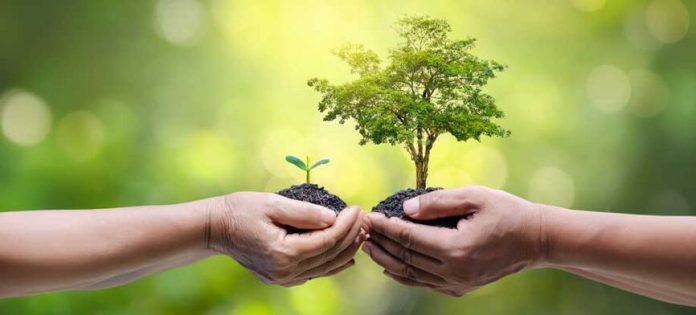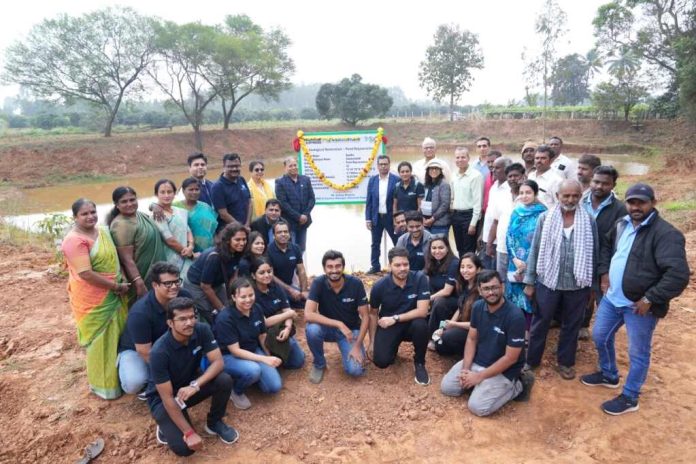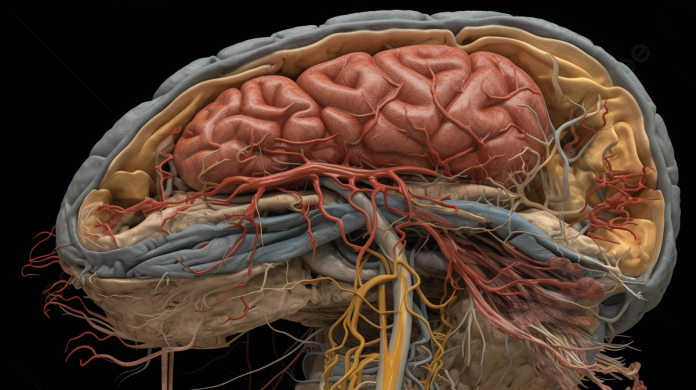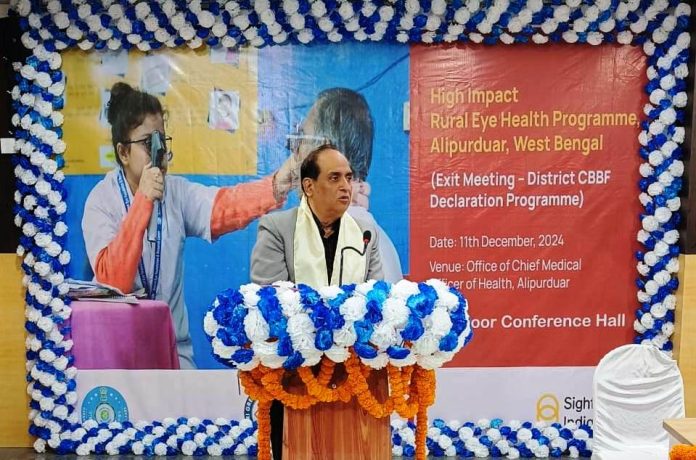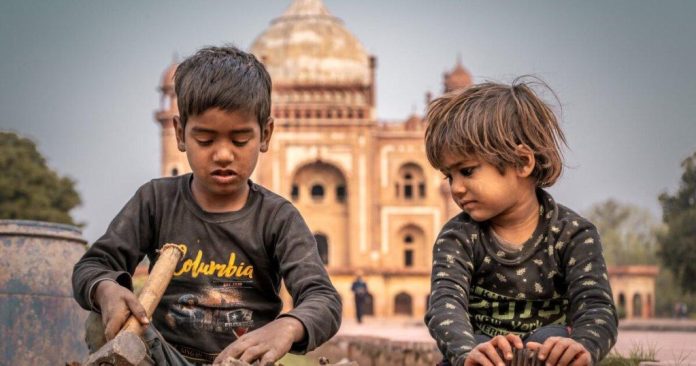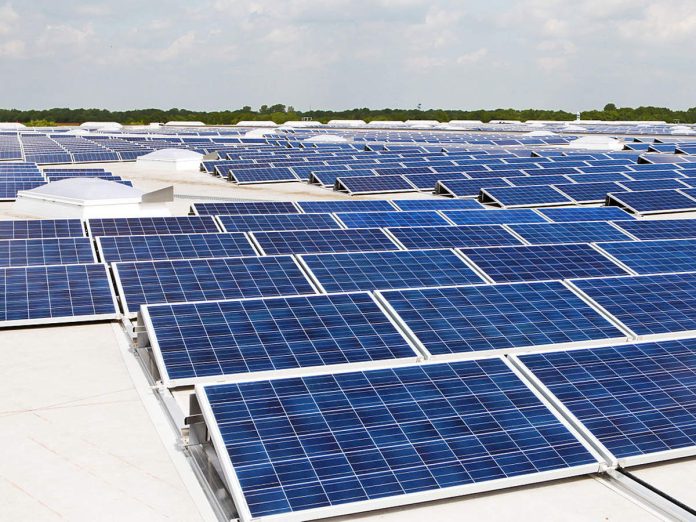The Complete CSR Report of HCL Technologies, Building Strong Communities
HCL Technologies is a next-generation global technology company that helps enterprises reimagine their businesses for the digital age. The company builds sustainability principles and actions into its strategy, culture and day-to-day operations. HCL CSR aims to improve the lives of people around the planet, engaging our employees, clients, stakeholders and the communities we live in, to a higher purpose.
In order to make the most difference in a way that it can do the best for the society, the company focuses its Corporate Social Responsibility (CSR) initiatives on health, education, technology, jobs and people who are denied the benefits and access afforded by science, technology and innovation.
In the FY 2023-24, the company spent INR 291.21 crores under its CSR spending, which is more than the prescribed 260 crores as per the Section 135 of the Companies Act, 2013. With this year’s investment, the company’s cumulative CSR spending reached INR 1400 crores in India, which helped to transform the lives of over 6.5 million people.
The below video highlights the CSR initiatives of HCL Technologies:
Keyphrase: HCL CSR
1. CSR at HCL Technologies
HCL Technologies conducts its CSR initiatives through its CSR arm, HCL Foundation. HCL CSR concentrates its efforts to transform the lives of vulnerable communities in India and around the world.
The company through its flagship CSR initiatives HCL Samuday, HCL Grant and HCL Uday, has impacted the lives of more than 6.5 million people in India. HCL Foundation has been creating opportunities to break the cycle of poverty through its initiatives pertaining to Early Childhood Care and Development (ECCD), Education, Health, Livelihoods, Water Sanitation and Hygiene (WASH), and Disaster Risk Reduction and Response (DRR) verticals in rural and urban communities. The Foundation has also worked to address environmental poverty through mass plantation, water conservation and rejuvenation, and animal welfare initiatives.
However, the company defines the spirit of its CSR by its “Power of One” initiative which consists of the company’s employee volunteers and contributors who offer their personal time and commitment toward social upliftment.
2. CSR Policy
The objective of the CSR policy of the Company is to lay down guidelines for proper execution of CSR activities of the Company so as to support the sustainable development of the society. The Company has set up HCL Foundation to focus on the CSR activities of the Company. The CSR activities, projects and programmes undertaken by the Company shall be those as approved by the CSR committee and are covered under the areas set out in Schedule VII of the Companies Act, 2013. The Company is doing CSR expenditure in Education, Infrastructure, Women Development, Health, Environment Sustainability, Promoting Gender Equality and Disaster Management.
2.1 CSR Committee
The CSR Committee of HCL Technologies comprises of Ms Roshni Nadar Malhotra, the Chairperson of the company, Mr S. Madhavan, and Dr. Mohan Chellappa.
The CSR activities, projects and programmes to be undertaken by the Company are to be approved by the CSR committee. The CSR Committee is responsible for the approval of undertaking of such activities, projects and programs as are covered in Schedule VII of the Companies Act, 2013. It is also responsible for determining whether the CSR activities, projects and programmes are to be carried out by the company directly, through the trust established by the company (HCL Foundation), or through any other registered trust qualified to take up CSR activities.
It is the CSR Committee’s prerogative to direct the foundation or executive partner of the company for the particular CSR project about the specific activities, projects or programs that are to be undertaken, the modalities for utilization of funds on such projects and programs and the monitoring and reporting mechanisms to be followed in that regard.
3. Power of One – Heart and Soul of HCL CSR
Power of One (Po1) is the backbone for the HCL CSR. The employee-led program is one of the key initiatives of the HCL Foundation. Power of One was introduced with the idea that a small contribution can make a huge difference in people’s lives and can go a long way in making a significant impact in society. HCL Community Champions have shown great commitment toward all volunteer-based activities of HCL Foundation and continue to support our mission of transforming lives and spreading goodwill
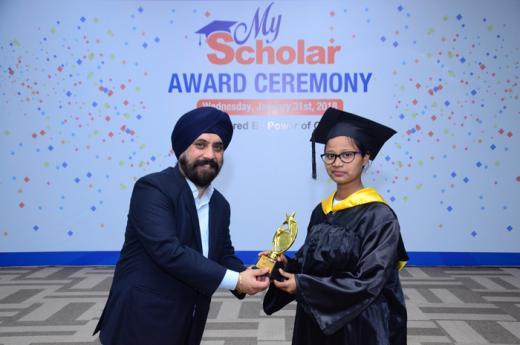
Under the program, the HCL Community Champions have shown great commitment towards all volunteer-based activities of HCL Foundation and have clocked over 13,800 volunteer hours this year.
The funds collected through the program are used to support meritorious students through long term scholarships for excellence in academics and sports. These students belong to disadvantaged backgrounds and are family members of HCL’s support staff or part of HCL Foundation supported schools and communities.
Through this initiative, scholars get an opportunity to develop leadership skills, get mentoring and coaching for their subjects and career counselling.
4. HCL Uday
With a vision of clean, green, healthy and empowered communities, HCL Foundation works to break the cycle of urban poverty through its integrated urban development program – HCL Uday. The approach of the programme is based on the intrinsic belief that the urban poor aspire to a life of dignity and self respect. Through this program, HCL Foundation creates opportunities through carefully designed strategies that speak both to their environment and to the ambitions of the community in 11 cities.
The programme is an umbrella initiative under which following projects are being implemented:
4.1 My Community
HCL Foundation’s endeavours in the urban slum communities are grouped under the ‘My Community’ rubric. Through this unique model, HCL Foundation addresses diverse social issues for the same vulnerable population in an integrated manner. The model also involves improving access of existing government service delivery points, by entering into strategic MoUs with relevant government departments. The model is designed in a way to ensure that the target population experiences holistic development, and is educated, healthy, adequately skilled and lives in a healthy environment.
4.2 My School
My School is a State School Quality upgradation project under the ambit of Right to Education. It is aimed at achieving improvement in enrolment, attendance and learning outcomes of students. This is achieved through a participatory model of school development which includes building capacities of all relevant stakeholders in the school’s ecosystem.
4.3 My Scholar
My Scholar is a sustainable career development project for students from weaker economic backgrounds. Under this project, HCL Foundation provides long-term scholarship and mentoring support to meritorious and talented students from HCL project locations and children of HCL’s support staff. The scholarship is funded through Power of One – HCL’s payroll giving program and driven by HCL employees who provide mentoring support to the scholars.
4.4 My Worth
My Worth program uses a self-efficacy model to empower and enable young girls and boys towards self-reliance through a gender transformative approach.
Since inception, Uday has cumulatively reached through NGO partners over 1 million participants, of which 57% are female, and about 2,200 persons with disability, across 92 slums.
Under the Environment pillar of HCL Uday, the foundation managed to cumulatively plant 822,574 saplings. In addition to this the foundation took up 3027 acres of water bodies for restoration and rejuvenation. The Environment vertical is now known as ‘Harit- the Green Spaces Initiative’.
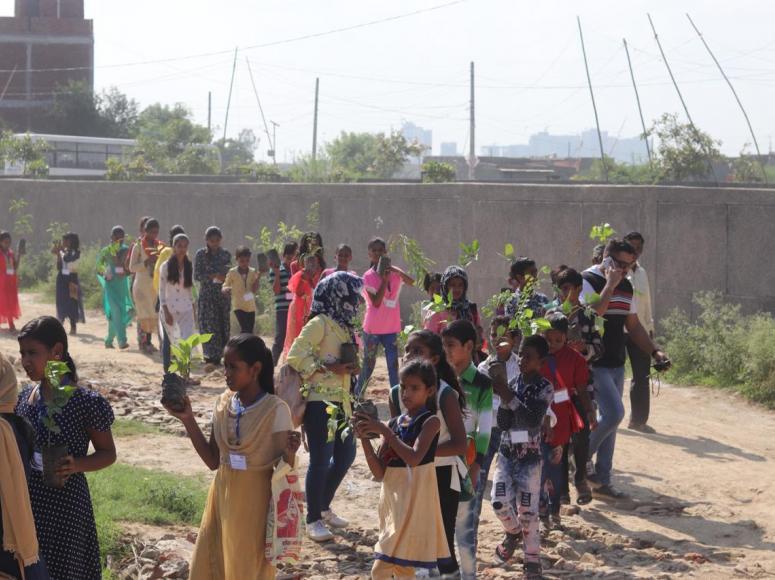
5. HCL Grant
HCL Grant is one of the biggest and most coveted institutionalised CSR grants in India that aims to recognise the rise of the Non-Governmental Organisations (NGOs) and support their breakthrough projects reaching out to the rural communities in the country.
HCLTech Grant is transforming rural India through grants of ₹5 crores each to three winning NGOs in the environment, health and education categories. The Corbett Foundation (environment), Sangath (health) and Makkala Jagriti (education) were the winners for FY24. A cumulative ₹146.95 crores ($18 million) has been committed to 49 NGOs so far, positively impacting lives of 2 million+ individuals. A total of 20 projects are active across 16 states and 2 Union Territories.
6. HCL Samuday
HCL Samuday is a rural development initiative launched in 2015 with an aim to develop a sustainable, scalable, and replicable model for economic and social development of rural areas. The program covers 619 Gram Panchayats in Hardoi, Uttar Pradesh and in Thoothukudi, Tamil Nadu, positively impacting the lives of over 2.4 million people.
HCL Samuday, has interventions across six verticals for holistic rural development – agriculture, education, health, infrastructure, livelihood, and WASH (Water, Sanitation, and Hygiene).
7. My Clean City – HCL CSR Initiative
HCLFoundation launched its ambitious municipal
waste management flagship program My Clean City
in 2018. It is committed to improving solid and liquid waste management system and processes, promoting environmentally-conscious behavior, beautification, sanitation and sustainable waste management practices in urban spaces.
With five years of impactful implementation in Noida, the program has transformed Noida into the cleanest city in Uttar Pradesh and 14th overall in India, according to Swachh Surveksan 2023. Noida also received Water+ certification and 5-star rating in Garbage Free City category under the survey.
My Clean City has now expanded to Greater Noida city with the objective of replicating its best practices to a larger population.
Conclusion
HCL CSR promotes the holistic development of society. Its strategic approach to the country’s social and economic development is what sets it apart from its contemporaries. In recognition of its efforts, the company was awarded the title of one of the World’s Most Ethical Companies 2024 by Ethisphere.
CSR News: Launch of Largest Tree Plantation Drive under Ek Ped Maa Ke Naam Initiative
The Academy will plant 3,00,000 native tree species across Ahmedabad and Detroj Districts in Gujarat and Sivaganga District in Tamil Nadu, under the #एक_पेड़_माँ_के_नाम (#Plant4Mother) initiative, marking a significant milestone in its mission to promote environmental conservation.
This groundbreaking project, part of ONGC’s Corporate Social Responsibility (CSR) initiatives, aims to revitalize degraded community lands in these regions. Around 10-acre land parcels have been identified at each location to support the plantation and maintenance of 1,50,000 saplings in Gujarat and 1,50,000 saplings in Tamil Nadu. The project is slated for completion by March 2025, with a comprehensive three-year care plan to ensure the survival and growth of the trees. This effort is set to transform barren landscapes into vibrant green spaces, supporting India’s climate action goals and boosting rural livelihoods.
Maninder Singh, Secretary of Bal Bharti Academy, expressed his vision for the initiative: “This partnership with ONGC is not just about planting trees; it’s about sowing seeds of hope for a sustainable future. Our focus is to ensure these trees flourish, positively impact local communities, and strengthen our fight against climate change.”
Bal Bharti Academy’s expertise in executing large-scale environmental projects, combined with ONGC’s commitment to sustainability, creates a powerful collaboration. Together, they aim to inspire collective action for a greener planet under the shared vision of the #Plant4Mother initiative.
The plantation drive is scheduled for completion by March 2025, with sustained community participation and ecological monitoring extending until 2028. This initiative aligns with the United Nations Sustainable Development Goals (SDGs) and complements national programs like the National Action Plan on Climate Change (NAPCC) and Mission Life.
Disclaimer: This media release is auto-generated. The CSR Journal is not responsible for the content.
CSR News: National Energy Conservation Day
On the occasion of National Energy Conservation Day, Marico Limited, one of India’s leading FMCG companies shares its critical milestone in proactively minimising its environmental footprint by harnessing the power of renewable energy sources. 67.4% of Marico’s operational energy requirements (electricity and thermal) are addressed from renewable sources.
One of the remarkable achievements for Marico in FY24 has been the near-complete transition to bio-based briquettes for thermal energy needs. This pioneering approach resulted in meeting more than 90% of the company’s operational thermal energy needs from renewable sources.
Guided by a robust sustainability framework, this achievement reflects its continuous focus on powering sustainable progress through operational excellence, energy-efficient systems, and renewable energy options.
Marico has made meaningful progress towards its Sustainability Vision for 2030, building on the success of its inaugural 5-year sustainability targets. In line with this, the company has outlined a comprehensive strategy of achieving Net Zero operational emissions in India (across owned manufacturing units) by 2030 and in global operations by 2040. The company has established a central energy management cell to define reduction strategies and monitor performance. By integrating low-carbon technologies, investing in renewable energy, and employing carbon sequestration techniques, Marico aims to phase out fossil fuel usage entirely.
As part of its climate action plan, in India, the Marico aims to reduce Scope 1 and Scope 2 GHG emissions by 93% and offset the remaining 7% emissions through sequestration and carbon offset by 2030. The company has already made significant progress, achieving a 79% direct GHG emissions reduction compared to its base year FY13. Aligned with this vision, all Marico manufacturing facilities are 100% coal-free and are focusing on transitioning to renewable sources to meet its operational energy requirements.
By deploying a set of structured interventions towards energy efficiency and environmental stewardship, the Perundurai facility, has been externally certified as ‘carbon neutral’ for the fourth consecutive year. This state-of-the-art plant operates almost entirely on renewable energy sources and has been equipped with smart energy installations that enhance operational efficiency. Energy-saving measures in expellers, cookers, and conveying equipment, along with the use of clean fuels like bio-briquettes, have led to a steady decrease in greenhouse gas (GHG) emission intensity year-over-year. These efforts have enabled the company to surpass its emission reduction targets.
Notably, the Sanand unit in Gujarat has increased its renewable energy share by 2.8 times in FY24, making it one of the company’s most advanced manufacturing setups.
Commenting on these milestones, Mr. Amit Bhasin, Chief Legal Officer, Group General Counsel, and Secretary of the CSR Committee at Marico Limited said, “Since our inception, we considered environmental stewardship as a core value. Pioneering steps like transitioning to coal-free operations and implementing the first agro-fuel based boiler laid the foundation for further advancements. We have consistently sought the use of cleaner energy sources, culminating in the achievement of the first carbon-neutral plant certification and the installation of our first solar facility.
Building upon the Marico legacy of making a difference, we envision sustainable business-centric growth in the years to come. We strive to minimise our environmental footprint throughout the value chain, from sourcing to production and distribution. We are constantly innovating to improve energy efficiency and transition to renewable energy sources. By integrating environmental responsibility into every aspect of our operations, we are also committed to minimising the environmental impact of our products and packaging and create a sustainable roadmap for building a healthier planet for generations to come.”
Marico’s Sustainability Vision 2030 encompasses eight strategic themes, including Climate Change, Water Stewardship, Circular Economy, Responsible Sourcing, Purposeful Brands, Diversity and Inclusion, Sustainable Agriculture, and Corporate Governance. Guided by these themes, the company has implemented a robust framework to track and manage its environmental impact and aims to make a difference with multiple initiatives introduced across our global operations.
Disclaimer: This media release is auto-generated. The CSR Journal is not responsible for the content.
CSR News: ‘Program Vasundhara’ launched for Environmental Sustainability and Biodiversity in Bengaluru and Gurugram
New Delhi, India: American Express, in partnership with Safe Water Network, has announced the launch of Program Vasundhara, a three-year initiative designed to promote environmental sustainability, biodiversity conservation, and climate resilience in Bengaluru and Gurugram. This comprehensive program will support India’s climate and sustainability goals by empowering local communities, restoring ecosystems, and fostering sustainable development practices in collaboration with Safe Water Network.
Program Vasundhara’s Vision and Regional Impact
This initiative will prioritize water resource management, sustainable agriculture, biodiversity conservation, and renewable energy across the two cities.
Bengaluru: Around the Aivarakhandapura Lake, Program Vasundhara is building an 18-million-liter rainwater harvesting structure to boost local water availability and reduce dependency on external sources. This is a crucial step in addressing local water challenges while fostering resilience in the community.
Sanjay Khanna, CEO and Country Manager, American Express, India said, “At American Express, we are committed to creating a positive impact on communities and the environment. Program Vasundhara exemplifies our dedication to climate resilience and sustainable ecosystems in Bengaluru and Gurugram. Through this partnership with Safe Water Network, we are not only addressing current environmental challenges in parts of India but also paving the way for a greener future.”
To further enable local farmers, an automated weather station has been set up, linked to a mobile app providing hyperlocal weather insights. This advanced system will guide farmers on crop management, pest control, and disease prevention, using AI to offer accurate weather updates to prepare for any extreme weather impacts.
Gurugram: In the Aravalli region, reforestation and ecosystem restoration will be central, including the planting of 15,000 trees and land restoration across 10,000 hectares. These actions will increase green cover, boost biodiversity, and support the region’s climate resilience efforts. Solar-powered solutions will also be implemented in key public areas, reducing carbon emissions and promoting renewable energy.
Madge Thomas, Head of Corporate Sustainability at American Express, commented, “Program Vasundhara is about making environmental progress to address the pressing water crisis through local engagement and education. By partnering with Safe Water Network, we’re ensuring that communities gain the tools and support to protect and nurture their natural environments. It’s a significant collaboration that aligns with our commitment building resilient communities that are empowered to respond to extreme weather and natural disasters.”
Empowering Local Communities and Economic Development
In both regions, Program Vasundhara emphasizes empowering local communities through sustainable livelihoods and eco-friendly enterprises:
Nearly a thousand women from 85 villages will receive training and resources to launch small and micro-enterprises in agriculture and conservation. Participants in self-help groups (SHGs) will learn to cultivate, market, and sell medicinal plants and process other agricultural products. The program will also connect them with government schemes, banks, and cooperatives to secure financial support.
Poonam Sewak, Vice President of Programs and Partnerships, Safe Water Network, shared, “We are honored to lead Program Vasundhara with American Express, an initiative rooted in community participation and ecological restoration. This program illustrates the profound impact of local engagement in conserving and rejuvenating vital ecosystems. Together, we’re building pathways for sustainable livelihoods and environmental stewardship that will benefit generations.”
Additional Features of Program Vasundhara
Restoring Urban and Peri-urban Ecosystems (Land and Water): Enhanced ecosystem services, including local food systems, water sources, and medicinal plants, through conservation of key regions.
Climate Action: Adaptive measures and energy-efficient solutions to reduce climate vulnerability.
Community Engagement: Livelihood-based eco-restoration that empowers communities, especially women, with sustainable income opportunities.
Capacity Building: Technical training for local stakeholders to support long-term conservation practices.
Knowledge Management and Awareness: Showcasing Program Vasundhara as a model for corporate-supported biodiversity efforts on national and global platforms.
As Ms. Sewak further emphasized, “This program aligns with India’s climate goals and Mission LiFE (Lifestyle for Environment), setting a powerful example for community-driven conservation.”
Program Vasundhara will benefit over a million people across 85 villages in Bengaluru and Gurugram. It includes major ecosystem restoration activities, such as reforestation, sustainable agriculture, climate action with tree planting, and renewable energy integration. Implemented by Safe Water Works, the program also aims to increase the technical capacity of state and local institutions, including biodiversity and watershed committees, and to establish a lasting model for biodiversity conservation.
Disclaimer: This media release is auto-generated. The CSR Journal is not responsible for the content.
Researchers at IIT Madras Create World’s Most Precise Brain Atlas
On December 10, researchers from IIT Madras made history by unveiling a 3-D map of five developing fetal brains from the second trimester of pregnancy. These high-resolution 3-D maps provided cellular-level information about the developing human brain. This is the most detailed map of a brain formed between 14 to 24 weeks inside the womb. This is also the time period when the human brain goes through rapid growth in size and complexity.
Project DHARINI
The brain atlas project developed by Sudha Gopalakrishnan Brain Centre at IIT Madras is one of its kind project. Under the name DHARINI, it has captured the developing human brain at a very early stage.
The brain is the most complex organ of our body, and its mapping requires a lot of precision and time. The team of researchers at IIT used advanced technology to visualise approximately 5000 brain slices and more than 500 brain regions, put together. The information gathered by IIT research researchers under project DHARINI is free to access and it will be a valuable resource for neuroscientists across the world.
To top this, precision at a cellular level was achieved while creating the 3-D map of the brain. This will particularly be a significant step forward in understanding brain disorders.
“This is groundbreaking research for clinicians. It will help us study how the human brain develops in the womb. For instance, we have discovered some surprising differences in timelines. What we precisely thought occurred at 14 weeks may actually happen at 17 weeks,” said Dr Kumutha, the dean and professor of neurology at Chennai’s Savitha Medical College and Hospital. She was one of the collaborators on the project.
According to Dr. Kumutha, the data coming out can provide critical insights into brain disorders such as autism. Still not understood very properly, now neuroscientists will be able to understand the development of autism in children as well as adults.
“It may also help explain why some children suffer permanent damage and develop cerebral palsy after hypoxia or lack of oxygen while others recover without lasting effects,” adds Dr Kumutha.
Data coming out from the project will keep Scientists busy for years to come. A better understanding of the human brain will help create precise models for study. In spite of AI being a very important helping hand, precisely collected data from physical experiments will also be required at the moment.
Slicing The Brian
The Sudha Gopalakrishnan Brain Centre inside IIT Madras is supported by Infosys. The company’s co-founder, Kris Gopalakrishnan is trying to better AI tools that can be used to study the brain.
The brain atlas created by researchers of IIT Madras is the largest data set in the world. Alongside, it is the only study that was able to capture a growing brain inside human foetuses.
In 2016, the Allen Institute for Brain Science published a free-to-access brain atlas that captured the brain of an adult woman in approximately 1300 slices. However, the latest study surpasses this 2016 data. Five still borns in the second trimester were used to study and capture the complex structure of the brain.
The brain went through cryogenic freezing and was then thinly sliced for scientists to see and analyse the structure carefully. “The brains were very thinly sliced using complex robotic instrumentation. The slices are of just 10 to 20 microns thickness which is equivalent to 1/10 or 1/5 the thickness of the human hair,” says Professor Mohanshankar Sivaprakasam, head at Sudha Gopalakrishnan Brain Centre.
The thin transparent slices were stained and microscopically imaged in detail. Later, these slices were put together to create a 3-D map. All the instrumentation and technology used for freezing, sizing, creating plates, digiting and mapping were indigenously developed by researchers at IIT Madras.
It took around five years from scratch to finish the complete atlas of the brain by the Allen Institute in 2016. However, the IIT Centre has collected and processed one large brain within a month.
CSR News: Project HARMONY 2.0 launched to Promote Sustainable Development on Water and Financial Literacy
Mumbai, India: True Credits Pvt. Ltd., in collaboration with The Energy and Resources Institute (TERI), has launched Project HARMONY 2.0, titled “Be Water Wise!” This transformative initiative addresses critical issues of water conservation and financial inclusion in the villages of Meham and Firozpur-Jhirka in Haryana. With over 2 billion people globally lacking access to safely managed water, the project seeks to advance sustainable development and environmental stewardship.
The initiative focuses on water conservation by introducing clean drinking water systems in government schools and refurbishing local water bodies to ensure reliable access to safe water. The refurbishment of a local pond in Meham, for instance, will involve rainwater harvesting, runoff management, and beautification efforts, including solar-powered lighting and plantation drives, to prevent water evaporation and maintain soil moisture. The beautified pond will serve as a community focal point, promoting both social engagement and water conservation awareness. Additionally, schools will be equipped with solar-powered clean drinking water systems, providing renewable energy access to cater to basic electrical needs while offering sustainable and hygienic drinking water solutions.
Parallelly, “Be Water Wise!” emphasizes the training of over 120 students on financial and digital literacy. These sessions aim to empower young individuals with essential skills to navigate economic challenges effectively. Students will also be designated as “Water Ambassadors,” advocating for sustainable water practices while promoting responsible resource management within their communities.
The project integrates an employee volunteering program, encouraging True Credits employees to actively engage in community mobilization activities, student training, and outreach workshops. This involvement reinforces the organization’s commitment to fostering a strong link between its corporate values and external impact.
The training modules under this initiative cover topics such as rainwater harvesting, wastewater treatment, and financial literacy, encompassing consumer rights, fraud prevention, and effective resource management. Activities like the “Water Ambassador Challenge” will engage students creatively, driving their commitment to conservation.
Mr. Gaurav Sharma, CHRO of True Credits Pvt. Ltd., stated, “Project HARMONY 2.0 represents our unwavering commitment to addressing the critical needs of the communities we serve. By combining water conservation efforts, renewable energy solutions, and financial literacy training, we aim to create a holistic and sustainable impact. Our collaboration with TERI underscores the significance of partnerships in scaling CSR initiatives to achieve long-lasting change. Building on the success of HARMONY Phase 1, this phase furthers our shared vision of fostering sustainable development and empowering communities.”
Dr. Mini Govindan, Senior Fellow at TERI, remarked, “Collaborative efforts are the cornerstone of sustainable development, and Project HARMONY 2.0 is a testament to this approach. Together with True Credits, we are empowering communities through enhanced access to clean water, solar energy, and financial literacy. This partnership is not only about addressing immediate needs but also about building long-term resilience and environmental stewardship in the region.”
By addressing these challenges holistically, “Be Water Wise!” supports several Sustainable Development Goals (SDGs), particularly those related to clean water and sanitation, quality education, and renewable energy. True Credits remains committed to ensuring the lasting impact of Project HARMONY 2.0 through continuous community engagement, empowering individuals with the tools and knowledge essential for sustainable growth.
Disclaimer: This media release is auto-generated. The CSR Journal is not responsible for the content.
West Bengal’s Alipurduar District Declared Cataract Blindness Backlog Free
Alipurduar, West Bengal: In a landmark achievement, Alipurduar district of West Bengal has been declared Cataract Blindness Backlog Free, an accomplishment made possible through the steadfast collaboration of Sightsavers India and the Alipurduar District Health and Family Welfare Department. This declaration is a landmark in our active contribution towards eliminating avoidable blindness, setting a new benchmark in public health.
The event was presided over by the Honourable Additional District Magistrate of Development Alipurduar, Shri Gorai; Chief Medical Officer of Health, Alipurduar, Dr Sumit Ganguly; District Inspector of School, Shri A Karim; and Mr RN Mohanty, CEO of Sightsavers India.
This achievement marks the culmination of a four-year journey (2020–2024) to reduce the prevalence of blindness in the district to less than 0.3%, a goal that demanded dedication, innovation, and collaboration at every level. Over the course of the initiative, more than 15,000 cataract surgeries were facilitated, in collaboration with both Government and NGO hospitals. Critical infrastructure improvements included the renovation of the District Hospital’s Operation Theatre and the capacity enhancement of the Falakata Super Speciality Hospital.
The programme also addressed a key demographic—children. With the support of the District Administration, over 196,000 children in Government schools underwent eye screenings, with spectacles provided to those in need. This initiative ensured that vision issues did not hinder their academic progress or quality of life.
The initiative fostered a culture of eye health awareness, empowering communities with knowledge and access to services. Extensive training for healthcare workers and enhanced public outreach were critical components of this success.
Speaking on the occasion, Mr. RN Mohanty, CEO of Sightsavers India, said:
“This achievement is a shining example of what can be accomplished when a shared vision meets passion and purpose. Over the past four years, we have worked in constant collaboration with the Government of Alipurduar, local partners, and dedicated healthcare professionals to turn the dream of making this district Cataract Blindness Backlog Free into a reality. Together, we have built a sustainable model of eye care that prioritizes accessibility and equity. This milestone reinforces the power of partnerships and inspires us to continue our mission of eliminating avoidable blindness.”
This accomplishment stands as a testament to the impact of multi-stakeholder collaboration in public health. It highlights the potential of targeted interventions and robust partnerships in eliminating avoidable blindness and improving quality of life.
Sightsavers India and its partners are committed to replicating this model across other regions, ensuring a brighter, more inclusive future for all.
Disclaimer: This media release is auto-generated. The CSR Journal is not responsible for the content.
Over 11.70 Lakh children out-of-school in India, Uttar Pradesh leads the way
In a shocking development, more than 1.17 million children across India have been identified as out-of-school in the first eight months of FY 2024-25 as per Government data. Uttar Pradesh reported the highest number of out-of-school Children at 784,228, followed by Jharkhand at number two with 65,070 and Assam at number three with 63,848.
Remarkably, Sikkim has recorded only 74 out-of-school children during this time period, which is the lowest among all states. While the Union Territories of Ladakh and Lakshadweep have no out-of-school children, Andaman and Nicobar Islands have recorded just two, and Puducherry only four.
This data was presented in the Lok Sabha on Monday by Union Minister of State for Education, Jayant Chaudhary. The Ministry of Education tracks these figures through its PRABANDH portal (Project Appraisal, Budgeting, Achievements, and Data Handling System), which is updated by states and Union Territories.
Children identified as out-of-school are aged between 6-14 years. These include children who have never enrolled in school or have dropped out after being absent for 45 days without notice.
States and UT-wise figures
Following is the list of states and Union Territories with their respective out-of-school children numbers for 2024-25:
Uttar Pradesh: 784,228
Jharkhand: 65,070
Assam: 63,848
Sikkim: 74 (lowest amongst states)
Ladakh: 0
Lakshadweep: 0
Andaman and Nicobar Islands: 2
Puducherry: 4
The above figures point out that India is yet to overcome challenges towards ensuring access to education for all especially in the states of UP, Assam and Jharkhand. However, the figures are slightly better as compared to FY 2022-23 which witnessed 1.25 million out-of-school children in India.
NTPC Renewable Energy Wins 500 MW Solar Power Contract in SECI Auction
New Delhi, India: NTPC Renewable Energy Limited (NTPC REL), a wholly-owned subsidiary of NTPC Green Energy Limited (NGEL), has emerged as a successful bidder in the e-reverse auction conducted by the Solar Energy Corporation of India (SECI) for the development of 2000 MW ISTS-connected Solar PV Power Projects. The auction, held on 9th December, 2024, also includes the establishment of Energy Storage Systems (ESS) with a total capacity of 1000 MW/4000 MWh.
NTPC REL secured 500 MW of solar power capacity at a tariff of Rs. 3.52 per kWh. As per the terms of the tender, the company is required to set up an Energy Storage System (ESS) of 250 MW/1000 MWh along with the contracted solar capacity.
This win comes at a significant time for NTPC Green Energy, which recently made its debut on the stock exchanges, receiving a positive response from investors. As of November 30, 2024, NTPC Group’s renewable energy portfolio stands at 4.1 GW of operational capacity, with nearly 21 GW in various stages of construction and tendering. The power giant has set a target to achieve 60 GW of renewable energy capacity by 2032.
Disclaimer: This media release is auto-generated. The CSR Journal is not responsible for the content.

